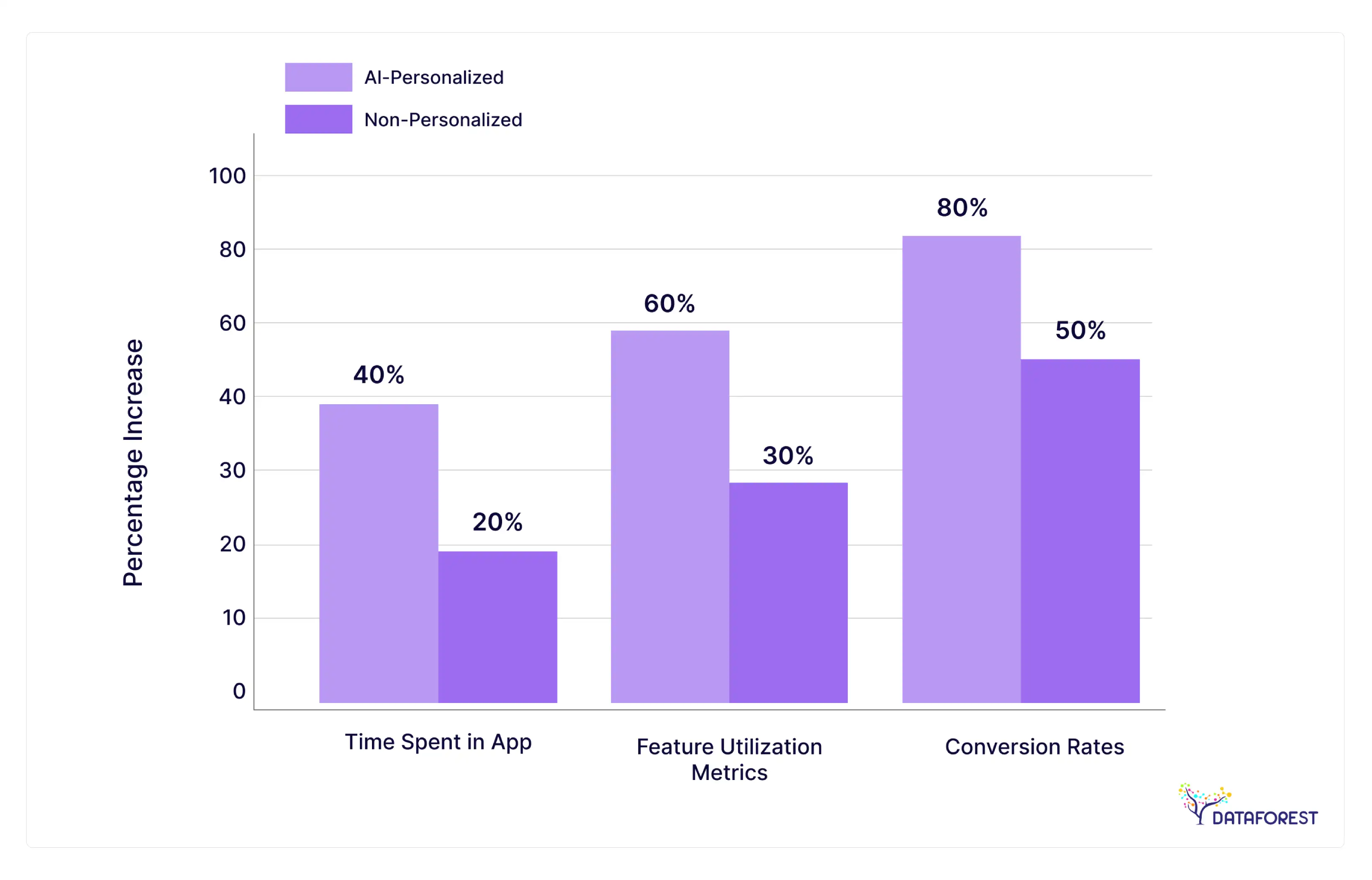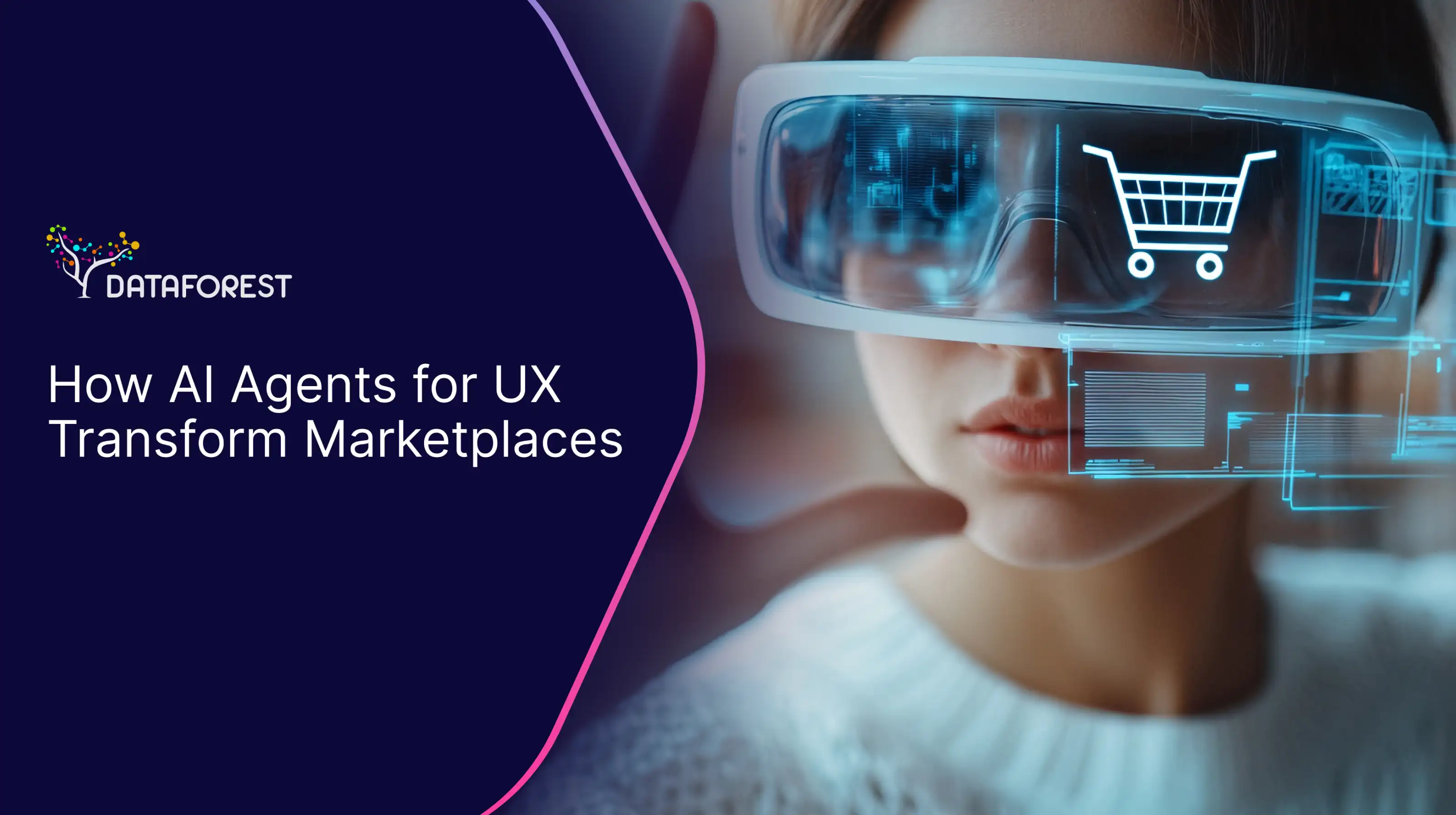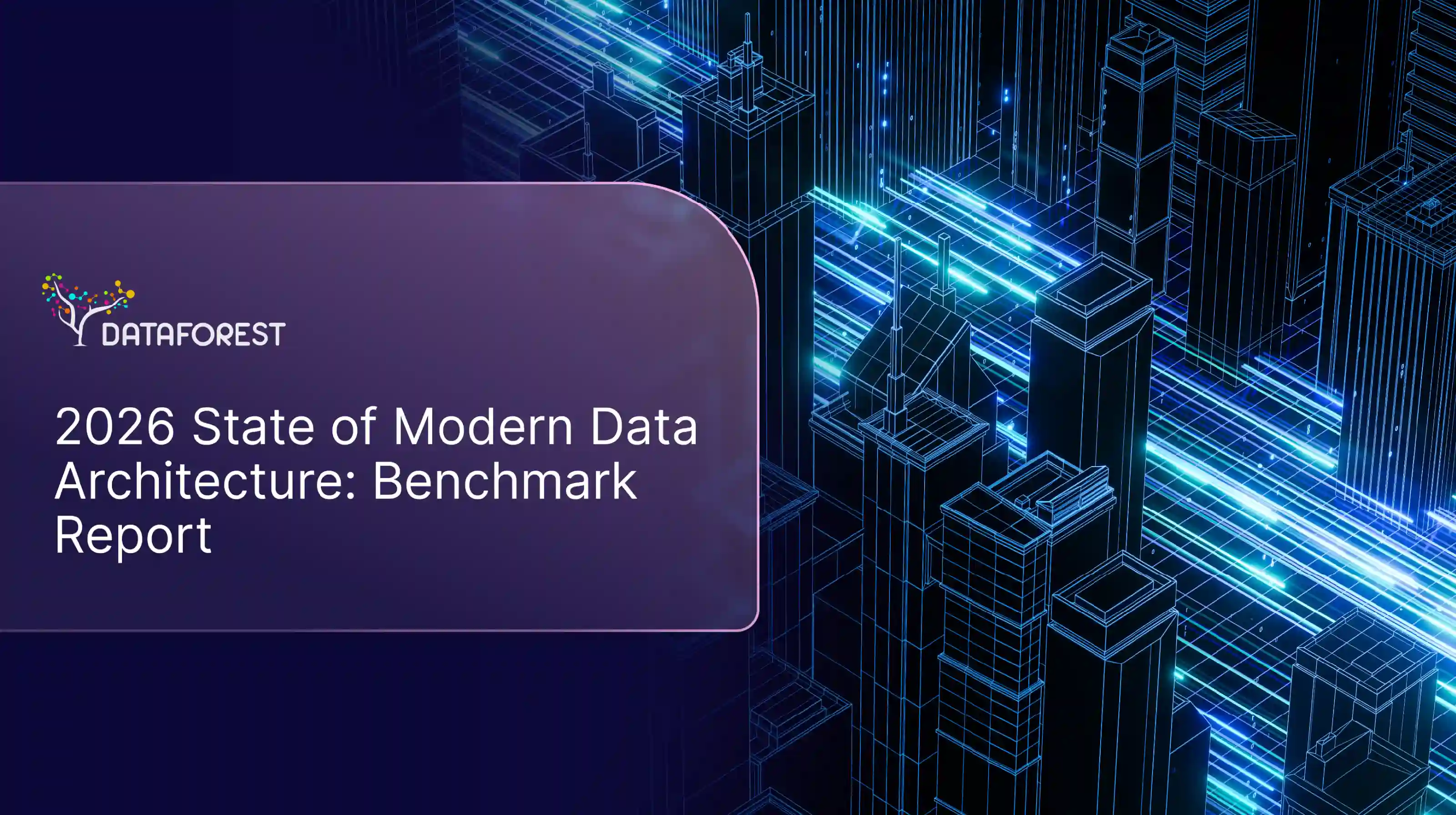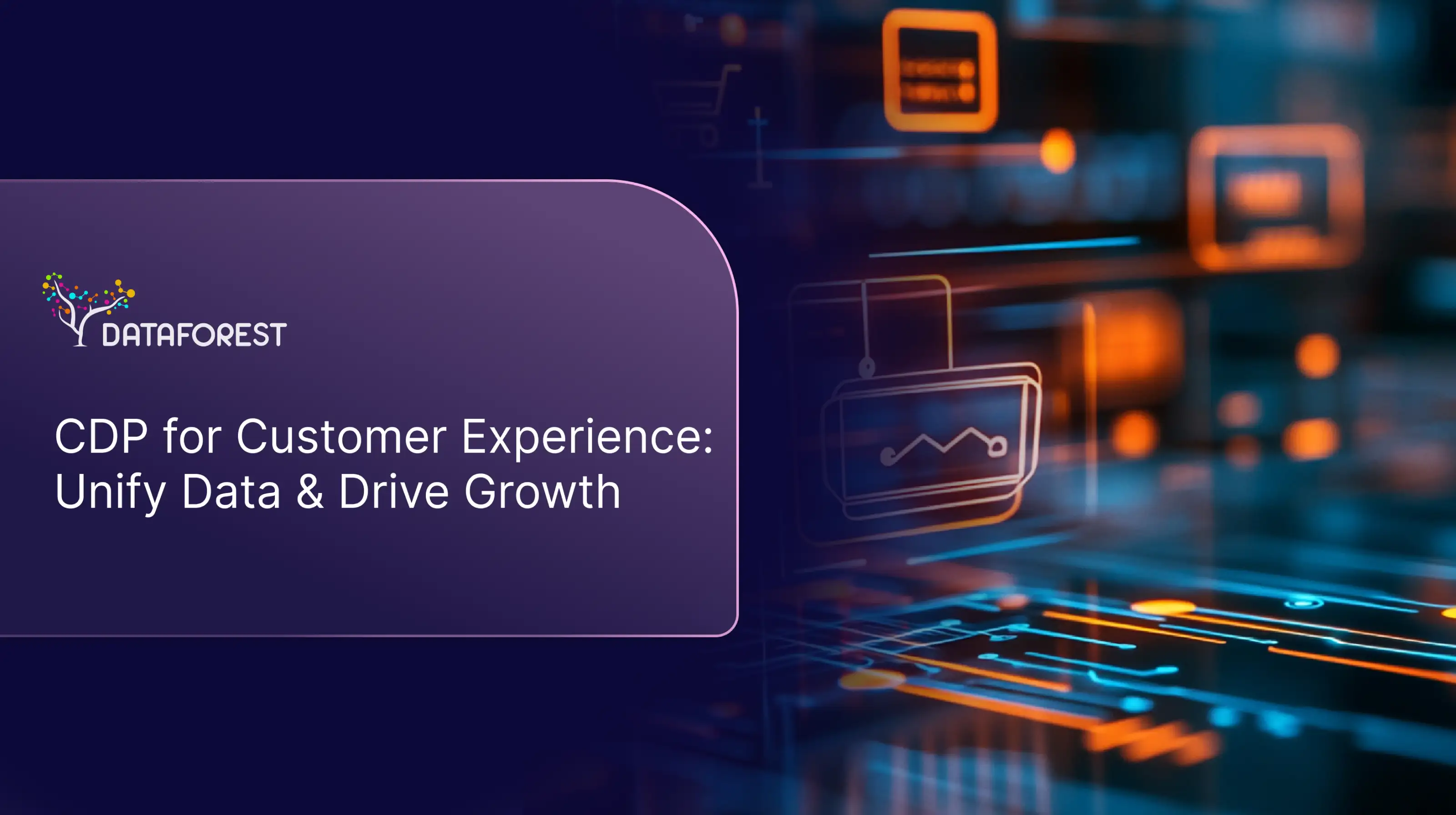The New Competitive Frontier in Digital Commerce
In the crowded world of digital marketplaces, the old ways of winning—price and selection—are no longer enough. The real battleground is now the user experience (UX). Today's customers don't just want things; they expect intuitive, personal, and lightning-fast experiences. For any leader at a medium or large enterprise, this is a massive challenge: how do you give millions of people a one-on-one experience?
The answer isn't about tweaking your current setup. It's about a fundamental shift powered by AI agents. This isn't just another buzzword for Customer experience automation. We're talking about moving beyond simple AI chatbots to deploying smart, autonomous systems that act as the central nervous system for your entire marketplace. The strategic use of AI in retail platforms has moved from the back office to the front lines of customer interaction. For companies ready to make the leap, AI agents for UX are the key to building a real competitive edge and unlocking serious growth.

The Current State of Marketplaces
Most e-commerce platforms, for all their bells and whistles, are built on an outdated, one-size-fits-all model. That old foundation is starting to crack under the pressure of modern customer expectations.
Challenges Facing Enterprises
Let's be honest: today's marketplaces are a high-stakes game. It costs a fortune to get a new customer, and it's incredibly easy to lose them. Shoppers are buried in options, leading to "analysis paralysis" and abandoned carts. Research from McKinsey drives this home: 71% of consumers demand personalized interactions, and 76% get frustrated when they don't get them. Trying to manually create millions of unique customer journeys is a fool's errand—it's just not possible or profitable. You end up with a generic experience that doesn't really connect with anyone.
Why Traditional UX Models Fall Short
Think of traditional UX as a silent librarian. It can point you to the right section if you know exactly what to ask for, but it can't offer advice. It's totally reactive. The customer does all the work, clicking through filters and typing into search bars.
This model breaks down because it doesn't get intent. A customer searching for "running shoes" could be a marathon pro or someone looking for a stylish pair for walking the dog. Old systems treat them the same. That's a missed opportunity. They can't have a conversation, they don't adapt, and they certainly don't offer help before you ask for it. Sophisticated Machine learning in e-commerce is finally changing that.
What Are AI Agents in the Context of Marketplaces?
To really grasp what's coming, we have to be clear about what AI agents are. They are miles beyond the scripted support bots of a few years ago. Think of them as smart software entities that can size up a situation, make a call, and act on their own to get things done.
Defining AI Agents
In a marketplace, these Intelligent agents are systems with a goal—acting on behalf of a user or the platform itself. They use the latest in AI to understand normal human language, handle complex, multi-step tasks, and get smarter with every single interaction. Unlike a chatbot that just follows a decision tree, an AI agent can actually negotiate, weigh options, and even see a need before the user spells it out. At DATAFOREST, we don't see these as add-ons; we build them as core parts of a living digital ecosystem.
Core Capabilities of AI Agents
What makes these agents tick? It's a combination of a few key things:
- Natural Language Understanding (NLU): They get how people actually talk—slang, nuance, and all.
- Proactive Task Execution: They don't just answer questions. They do things: schedule a delivery, process a return, find a replacement for an out-of-stock item, all on their own.
- Continuous Learning: They're not static. Every conversation, every action, refines their understanding and makes them better at their job.
- Personalized Memory: They remember you—your style, your past purchases, your goals—which makes every new interaction smarter than the last.
How AI Agents Transform User Experience
Putting AI agents for UX to work completely changes the game. It turns a simple transaction into a genuine partnership between the customer and your platform.
Hyper-Personalization at Scale
This is where personalization stops being a buzzword and starts being a reality. By applying advanced Machine learning in e-commerce, these agents look at everything a user does—clicks, hesitations, past buys, support chats—to build a living profile. You can finally stop targeting broad segments and start talking to an audience of one.
Imagine an AI-powered shopping assistant on a home goods site. It knows you just bought a minimalist sofa and have been looking at Scandinavian design ideas. It doesn't wait for you to search; it proactively suggests the perfect lamp and a few throw pillows that match the aesthetic. We saw this in action on a podcast platform project, where our AI recommendation engine drove engagement up by 7x. This magic happens when you have a solid foundation, like a Custom Retail Customer Data Platform, feeding the AI the right information.
Conversational Commerce and Seamless Navigation
The search bar is on its way out. Thanks to Conversational AI, customers can now just ask for what they want. Instead of clicking through a dozen filters, they can say, "I need a gluten-free birthday cake for 10 people delivered in Brooklyn on Saturday." The agent takes it from there—finding vendors, checking stock, and lining up options. Your platform stops being a static catalog and becomes an interactive Virtual shopping assistant, a key feature in the Custom E-Commerce Portals we engineer.
Intelligent Customer Support and Dispute Resolution
Customer support is critical, but it's a huge cost center. AI agents deliver Automated customer support that's not only 24/7 but also more effective. It's a core part of true Customer experience automation. They can pull up a user's entire history in an instant to solve problems without the tedious "what's your order number?" back-and-forth. For tricky situations, like a dispute between a buyer and seller, an agent can be the neutral third party, analyzing the conversation and suggesting a fair solution, only looping in a human when absolutely necessary. Our work on a Real-Time AI Voice Agent shows just how capable AI is at managing these kinds of complex, real-time dialogues.
Fraud Detection and Trust Building
Trust is everything in a marketplace. AI agents are the silent guardians working 24/7, analyzing behavior and transaction patterns to spot fraud before it happens. They catch the red flags—a new seller with suspicious listings, a buyer using multiple credit cards—and shut them down. This proactive Fraud Detection protects everyone and builds the trust your platform needs to thrive, which is especially vital in the FinTech world.
Data-Driven Insights for Marketplace Operators
The best part? These agents don't just help the customer. They create a goldmine of structured data for you. They spot trends as they emerge, identify gaps in your product lineup, and show you exactly where the friction is in your user journey. It's a constant feedback loop that helps you make smarter decisions. We built an entire AI web platform for Dropship.io on this principle, turning raw data from our e-commerce AI and its e-commerce AI agents into clear, actionable insights.
Business Value for Medium and Large Enterprises
At the C-level, it all comes down to the bottom line. The business case for AI agents is incredibly clear, hitting all the right notes: efficiency, growth, and security.
Operational Efficiency Gains
When you automate routine support tickets, order questions, and fraud checks, you free up your people to handle the complex, high-value work. The impact is huge. McKinsey estimates that AI can automate up to 70% of the tasks currently done by employees. That means leaner operations and healthier margins.
Revenue Growth Opportunities
A great experience makes people buy more. It's that simple. Hyper-personalization and conversational shopping lead to higher conversion rates, bigger carts, and customers who stick around longer. These systems act as incredibly effective sales AI agents, guiding customers to the right purchase and spotting opportunities to upsell or cross-sell without being pushy. BCG found that personalization alone can lift revenues by 6-10%—a number that e-commerce AI agents are set to blow past.
Risk Mitigation and Compliance
An automated, AI-driven system for sniffing out fraud and handling disputes cuts down on financial losses and protects your brand's good name. On top of that, AI agents can enforce your marketplace rules consistently and fairly, reducing your legal risks.
Key Considerations for Implementation
Switching to an AI-driven model isn't just plug-and-play. It takes a smart approach to your data, your people, and how you measure success.
Data Infrastructure Requirements
AI agents run on data. Good data. They need clean, real-time access to everything from your CRM to your transaction logs. This means you have to be ready to break down internal data silos. Before you even start, you need an honest assessment of your data maturity. Our AI Readiness Checklist is a good place to start, because as we always say, you can't build a skyscraper on a broken foundation.
Change Management and Adoption
Bringing in AI agents will change how your teams work, especially in support and marketing. You need a solid plan to get everyone on board. This means training people to work alongside their new AI colleagues and showing them how these AI tools make their jobs better, not obsolete. At DATAFOREST, we see this as part of the job—making sure the tech serves the business, and the people who run it.
Metrics That Matter
Forget vanity metrics. Success here is about tangible results. You should be tracking:
- Task Completion Rate: How many issues get fully solved by the AI without a human stepping in?
- Customer Satisfaction (CSAT): Are customers happier with the new experience?
- Conversion Rate Lift: Are people who use the agent more likely to buy?
- Cost Per Resolution: How much are you saving on each support interaction?
Market Shifts Driven by AI Agents
This isn't just an upgrade. The rise of AI agents is causing some fundamental shifts in how marketplaces work.
From Reactive Service to Proactive Engagement
Marketplaces are shifting from being passive platforms to proactive partners. Your platform's agent will be the one reminding a customer their subscription is ending or suggesting the perfect accessory for a product they just bought.
From Isolated Interactions to Ecosystem-Oriented Value
The really advanced AI agents will work across different platforms. The agent who helps you book a flight on one site will talk to the agent on a local tour site to build your whole vacation itinerary for you. This is a game-changer for industries like TravelTech.
From Human-Dependent Support to Scalable Autonomy
Your ability to offer amazing, personal service will no longer be tied to how many people you can hire. You'll be able to grow your user base by 10x without your support team costs exploding.
From Static Platforms to Adaptive Ecosystems
This is the end game: AI-driven marketplaces that learn and improve on their own. With millions of AI-driven interactions happening every day, the entire platform adapts in real-time—from its product recommendations right down to its Warehouse Automation.
The Strategic Imperative for a Transformed Experience
The writing is on the wall. AI agents for UX are redrawing the map for digital commerce. This isn't science fiction anymore; it's happening right now, and it's delivering real ROI in efficiency, revenue, and customer love. For business leaders, the question isn't if you should do this, but how quickly you can get started.
Waiting is not a strategy. It's a decision to let your more agile competitors define the future of your industry. The path forward starts with a solid data foundation and a clear vision for an autonomous, personalized future.
Ready to see how AI agents can become your marketplace's biggest asset? Book a consultation with our experts and let's start building that future today.
Frequently Asked Questions
How quickly does implementing AI Agents pay off for mid-sized marketplaces?
You can expect to see a return on your investment faster than you might think. While it depends on your starting point, most businesses see initial returns in 6-9 months from savings in customer support and a clear bump in conversion rates. Projects with clean data, like an AI scoring system we built for streamlining investment decisions, can show their value even quicker.
What brand risks are associated with AI Agents malfunctioning in e-commerce?
The biggest risks are a poor interaction hurting your reputation or a data privacy slip-up. You get ahead of this with serious testing, always having a "human-in-the-loop" escape hatch for tough problems, being transparent about how your AI works, and building it all on a rock-solid data and infrastructure foundation.
Can AI Agents predict seasonal demand fluctuations and assist with inventory planning?
Absolutely. This is a huge strength. By looking at past sales, current trends, and even outside signals like social media buzz, AI agents build incredibly accurate predictive models. These Data-Driven Insights help you stock the right products at the right time, so you're not left with too much or too little inventory.
Do AI Agents influence pricing optimization and dynamic pricing strategies?
Yes, they're perfect for it. AI agents can run dynamic pricing at a scale humans could never manage. They can tweak prices in real-time based on what competitors are doing, how much demand there is, and even a shopper's behavior, maybe offering a small nudge to a hesitant buyer. It's all about maximizing revenue on every sale.
How easily can AI Agents integrate with existing CRM and ERP systems?
It depends on your current tech. If you're on modern, API-friendly systems like Salesforce or NetSuite, it's pretty straightforward. If you're on older, legacy platforms, it might require some custom work. Any good project starts with a deep dive to map out all the connections, which is where real expertise in data engineering and MLOps pays off.
Can AI Agents detect potential fraudulent activity before it causes damage?
Yes, and they're incredibly good at it. They learn what normal behavior looks like on your platform, so they can spot suspicious activity in a heartbeat—weird logins, last-minute shipping changes, odd buying patterns. They can flag or freeze an account in real-time, stopping fraud before it happens. It's a critical part of any modern Decision Support System.





.svg)
.webp)















